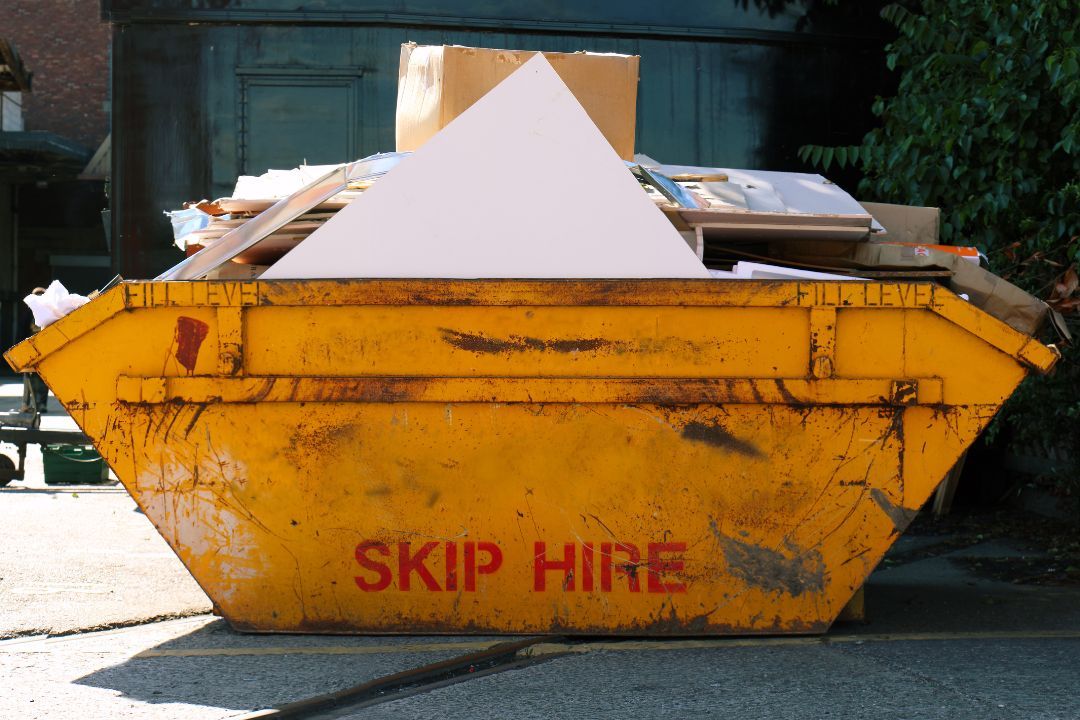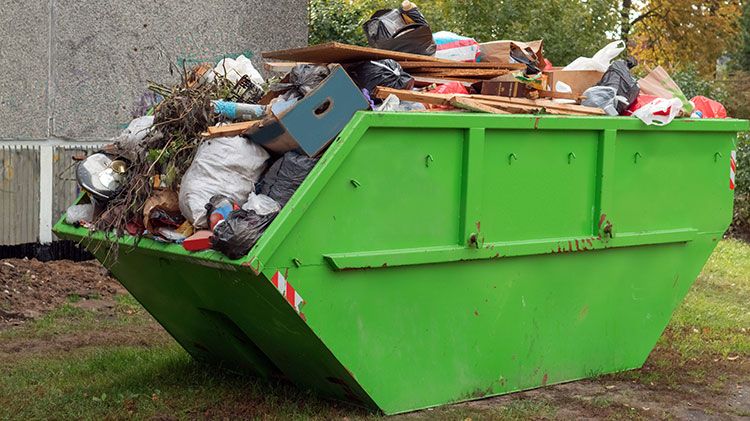What You Can and Can’t Put in a Skip Bin
What You Can and Can’t Put in a Skip Bin:
Hiring a skip bin is an efficient way to dispose of large amounts of waste during a renovation, house cleanout, or construction project. However, not everything can be thrown into a skip bin due to safety, environmental, and legal concerns. Knowing what you can and can’t dispose of in a skip bin is essential to avoid fines, environmental damage, or the extra hassle of removing prohibited items later.
1. General Household Waste:
Skip bins are ideal for getting rid of general household waste, making them useful for spring cleans, decluttering, or moving out.
What You Can Put In:
- Old Furniture: Chairs, tables, couches, and other bulky furniture items.
- Rubbish Bags: Bags of everyday rubbish, including non-recyclable materials.
- Appliances: Small home appliances such as microwaves, kettles, and toasters.
- Toys and Miscellaneous Items: Old toys, tools, and unwanted household items.
Why It’s Allowed: General household waste poses no immediate environmental or safety risks and can be processed by waste management services without issue.
2. Construction and Renovation Waste:
If you’re renovating, skip bins are perfect for handling a variety of construction materials. This includes materials from small DIY jobs to larger construction projects.
What You Can Put In:
- Bricks, Concrete, and Tiles: Leftover or broken materials from construction or demolition.
- Plasterboard: Gyprock or drywall scraps from renovations.
- Wood and Timber: Any treated or untreated wood scraps.
- Metal Scraps: Aluminum, steel, and iron are all acceptable in a skip bin.
Why It’s Allowed: Construction waste is bulky but safe to dispose of in most skip bins, and many materials can be recycled once sorted.
3. Garden Waste:
Skip bins are a great solution for large amounts of green waste from gardening or landscaping projects.
What You Can Put In:
- Grass Clippings: From lawn mowing or general garden maintenance.
- Branches and Tree Limbs: Trimmings from trees, hedges, or large plants.
- Leaves and Shrubs: Loose leaves, weeds, and dead plants.
- Soil and Dirt: Soil from landscaping or gardening.
Why It’s Allowed: Garden waste is biodegradable, and it can often be processed into compost or mulch, making it suitable for skip bin disposal.
4. Hazardous Materials:
Hazardous materials are strictly prohibited from skip bins due to the significant safety, health, and environmental risks they pose.
What You Can’t Put In:
- Asbestos: Highly dangerous and must be handled by licensed professionals.
- Batteries: Contain chemicals and metals that can leak into the environment.
- Paint, Solvents, and Chemicals: These materials are toxic and require special disposal procedures.
- Gas Cylinders: Pressurized gas cylinders pose a risk of explosion.
- Pesticides and Herbicides: Hazardous to the environment and humans, requiring careful disposal.
Why It’s Not Allowed: These materials can be hazardous to waste management workers and can contaminate the environment if not disposed of properly. Specialized facilities are required for their disposal.
5. Electronic Waste (E-Waste):
E-waste, or electronic waste, refers to discarded electronics such as computers, televisions, and phones. Many electronics contain hazardous materials and cannot be thrown in a standard skip bin.
What You Can’t Put In:
- Computers and Laptops: These devices contain batteries and metals that require specialized recycling.
- Televisions and Monitors: CRT or LCD screens contain toxic chemicals like lead and mercury.
- Mobile Phones and Tablets: These contain batteries that are harmful if not recycled correctly.
- Large Appliances: Fridges, washing machines, and dishwashers are also prohibited in many skip bins.
Why It’s Not Allowed: E-waste contains hazardous materials that can harm the environment. Many countries and regions require e-waste to be recycled at specialized facilities.
6. Food Waste and Organic Materials:
While some skip bins accept food waste, it is generally not ideal to dispose of large quantities of organic matter in skip bins unless it’s part of green waste.
What You Can Put In:
- Small Quantities of Food Waste: Some general household food waste can be thrown into a skip bin, particularly if it’s part of a larger cleanup.
- Organic Waste: As long as it’s part of the green waste category (such as compostable garden materials).
What You Can’t Put In:
- Large Quantities of Food Waste: If you’re throwing away large amounts of food waste, it’s better to use composting methods or arrange for a specialized collection service.
Why It’s Restricted: Large amounts of food waste can rot, leading to unpleasant odors and attracting pests. Specialized green waste bins or composting options are often more appropriate.
7. Tires, Mattresses, and Large Items:
Certain large or bulky items like tires and mattresses may be allowed in some skip bins, but it’s essential to check with your skip bin provider first.
What You Can Put In (With Permission):
- Mattresses: Some skip bin companies accept mattresses for an extra fee, as they require special recycling processes.
- Tires: Tires are sometimes accepted but often incur an additional cost due to the difficulty in recycling them.
Why It’s Sometimes Allowed: These items are more challenging to dispose of and often need to be taken to special recycling facilities, which is why some skip bin services may accept them with an extra charge.
Conclusion
Understanding what you can and can’t put in a skip bin ensures a smooth waste disposal process, saves you from potential fines, and helps protect the environment. General household waste, construction materials, and garden waste are typically allowed, while hazardous materials, e-waste, and large bulky items like tires often have specific disposal requirements. For all your skip bin waste needs, choose Ace Skips and Waste. With reliable service, affordable rates, and a commitment to responsible waste disposal, we make it easy to handle everything from household cleanouts to construction projects. Trust Ace Skips and Waste to provide the right skip bin for your job, ensuring a hassle-free experience every time.

